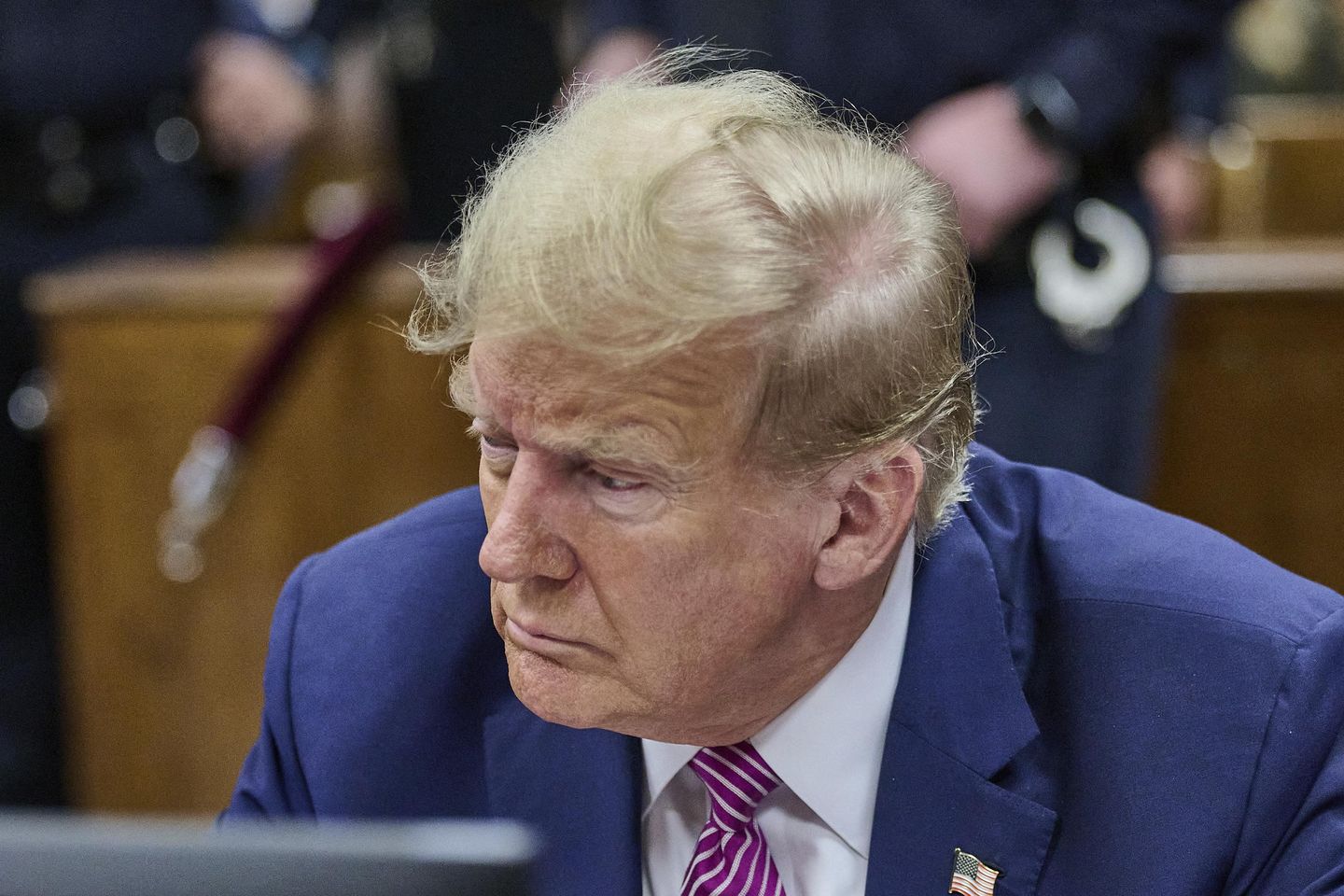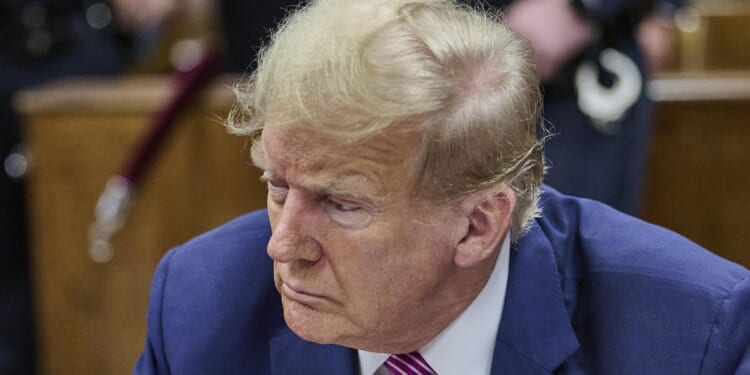
Key Democrats revealed new legislation Friday that would strip former President Donald Trump of his Secret Service agents if he is convicted and sentenced to prison.
Rep. Bennie G. Thompson, the top Democrat on the House Homeland Security Committee, said it’s about making sure Mr. Trump doesn’t get special treatment for whatever crime he might be sentenced. He is worried that having to accommodate a Secret Service protective detail could lead to accommodations for a former president.
“It is regrettable that it has come to this, but this previously unthought-of scenario could become our reality,” the Mississippi lawmaker said. “Therefore, it is necessary for us to be prepared and update the law so the American people can be assured that protective status does not translate into special treatment —and that those who are sentenced to prison will indeed serve the time required of them.”
He named his bill the Denying Infinite Security and Government Resources Allocated toward Convicted and Extremely Dishonorable Former Protectees Act — or the DISGRACED Former Protectees Act.
Under the law, former presidents such as Mr. Trump are given Secret Service protection.
For Mr. Trump, who is both a political candidate and a prosecuted citizen, that’s creating new challenges for the agency.
Mr. Trump is standing trial in New York in a case accusing him of violating the law by paying hush money to an adult film actress during the 2016 campaign.
The Secret Service is working with the New York courts and the New York Police Department on Mr. Trump’s security during the trial “to effectively carry out our protective mission.”
Mr. Trump also faces criminal cases in a state courtroom in Georgia and federal courtrooms in Florida and the District of Columbia.
Democrats who back the new bill said they believe the legislation is legal and constitutional. They dismissed ex post facto concerns, saying that legal doctrine barring changing the rules after the fact applies only in cases where the law is meant to be punitive.
Mr. Thompson argues his bill isn’t about punishment but rather about settling the details of custody.
Though aimed at Mr. Trump, the bill’s language would include anyone under Secret Service protection who is convicted of a crime punishable by at least a year in prison, which is generally the federal definition of a felony offense.

